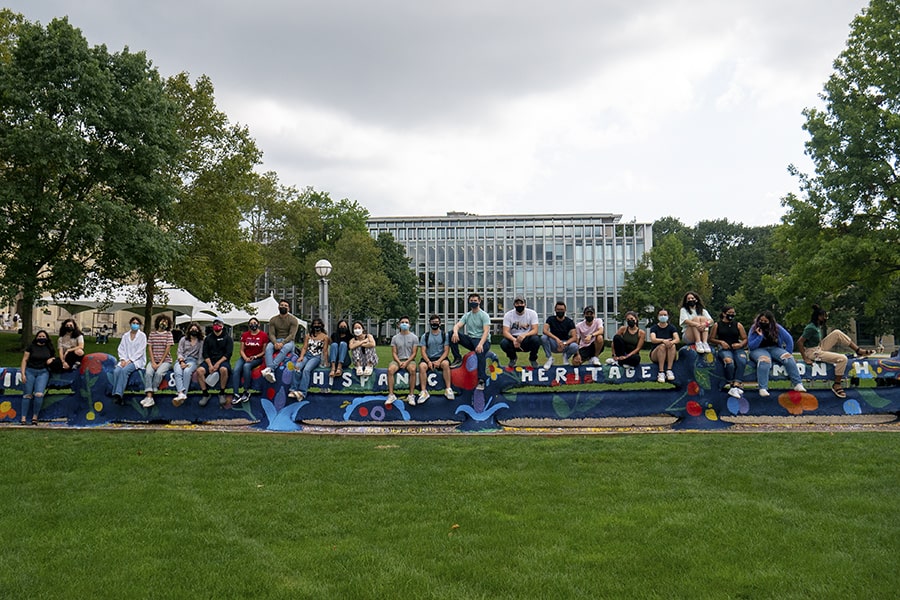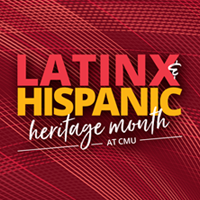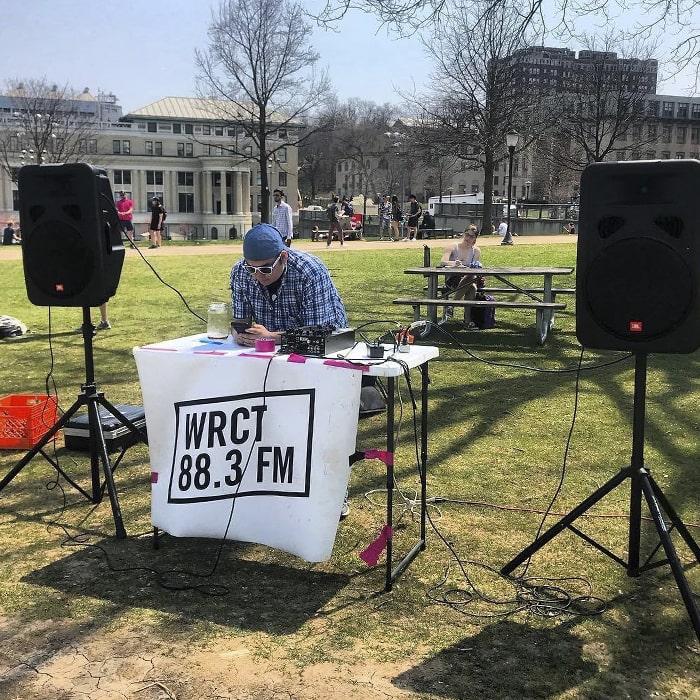
Mister Cao-Berg's Neighborhood
CMU alumnus hosts Barrio Latino, a radio show connecting the threads of Pittsburgh’s Latinx and Hispanic community
By Michael Henninger
As work ends on Thursday, the voice of alumnus Iván Cao-Berg resonates throughout Pittsburgh.
From WRCT 88.3 FM’s radio station, nestled in the basement of the Cohon University Center at Carnegie Mellon University, Iván connects to listeners across southwestern Pennsylvania as the host of Barrio Latino, a Spanish-language radio show in operation for more than 25 years.
Martha Mantilla created Barrio Latino in 1995, and it was originally called Revista Radial Latinoamericana. She works at the University of Pittsburgh as a librarian for the Latin American Studies Collection and ushered in a series of hosts who have taken on the program throughout its history — each putting their own unique spin on Pittsburgh’s longest running Spanish-language radio program.
Iván took on hosting duties almost six years ago.
He graduated from Mellon College of Science in 2009 with a master’s degree in computational biology and works as a research software specialist for the Pittsburgh Supercomputing Center, a joint research center of Carnegie Mellon University and Pitt.
Born in Argentina and raised in Puerto Rico, he says when he studied at CMU, he wanted to contribute to conversations about diversity and inclusion.
“I noticed that Latinos in Pittsburgh had no sense of community for many different reasons,” Iván says. “I wanted to help build that community, to increase our visibility and help to build a historical footprint.”
Iván met Kenya Dworkin, an associate professor of Hispanic studies in Dietrich College of Humanities and Social Sciences, who was then the host of Barrio Latino.
“There are a lot of places in the world where people rely on radio,” Kenya says. “It’s one of the cheapest ways to have news and entertainment.”
“I noticed that Latinos in Pittsburgh had no sense of community for many different reasons. I wanted to help build that community, to increase our visibility and help to build a historical footprint.”
As Kenya moved on from the show, she said she felt confident knowing it had been left in good hands.
“I’ve rarely met anyone who is so aware of what’s going on in the community,” Kenya says. “Iván is so good at finding and gathering information and then quickly turning it around.”
Iván has morphed Barrio Latino into more than a radio show. It’s now a website, documenting the events and conversations of a population that doesn’t have an exact geographic center.
Through a network of email lists and Facebook groups, he serves as connective tissue for the Latino community.
The Spanish-speaking community in Pittsburgh is not all in one location like you might find in other cities like New York, says Felipe Gómez, a teaching professor of Hispanic studies in Dietrich College of Humanities and Social Sciences.
“It’s very scattered and spread out. Every year, we have new students come here from Spain and Latin America who don’t know much about the city or where to find things. Barrio Latino serves as a bulletin board, helping them discover resources like gatherings and vaccine information,” Felipe says.
Felipe has previously taught classes at Carnegie Mellon on Spanish-language radio. These days, Iván guest lectures on his updated offering, Podcasting in Spanish.
Students in Felipe’s classes are able to get Iván’s opinions on their ongoing projects. In the past, students have been able to come onto Barrio Latino for a live conversation in Spanish. In the current podcast class, if a final podcast ends up meeting certain criteria, it may be broadcast on the radio.
“I’ve always been very grateful for the help Ivan provides,” Felipe says. “It also serves as a big test for the students who have been with us throughout the program. It’s daunting to be speaking on air, live, with a native speaker. But I’ve known many students who have highlighted the experience as one they’ve learned the most from.”

